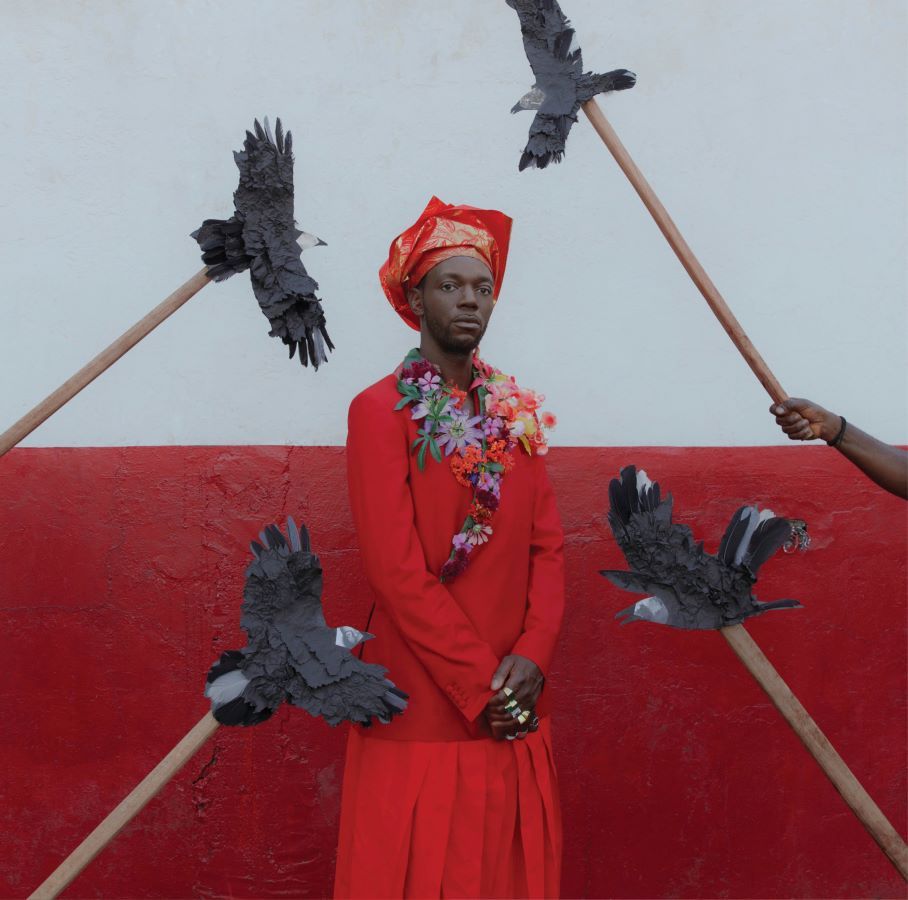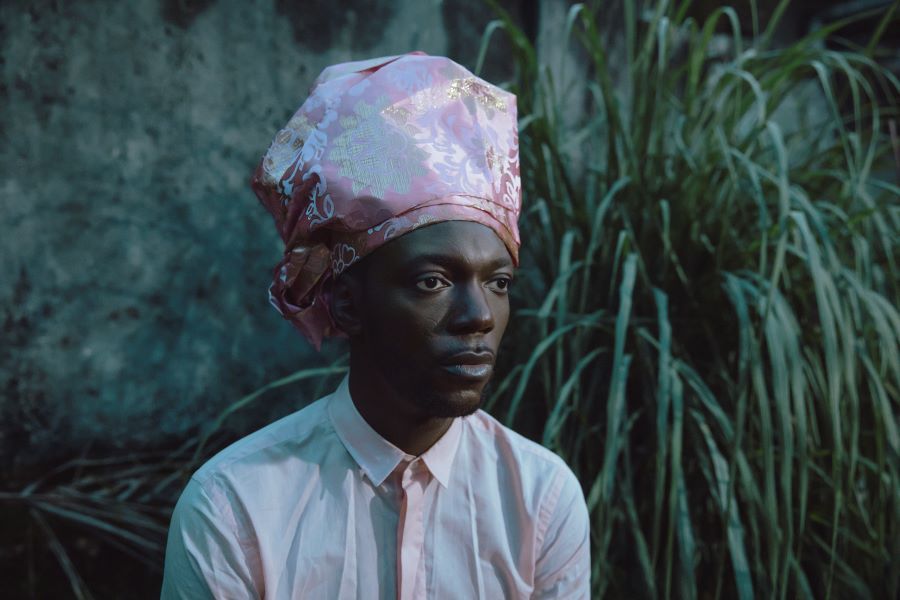
Baloji is a multifaceted artist, whose engaging and beautiful work defies categories. A director, rapper, designer and scenographer, the Lubumbashi-born Belgian likes to challenge Western patriarchy, as well as preconceived notions of African culture and identity. He also envisages fashion, and costume as a whole, as great gateways into storytelling.
His film feature film ‘Omen’, which he wrote and directed himself, has been critically acclaimed, winning Cannes “Prix de la nouvelle voix” in 2023, and representing Belgium for the Oscars this year. ‘Omen’ subverts the idea of a typical homecoming movie, using elements inherent in magic realism. Baloji has been touring worldwide with the film this year and is already planning on directing a new one.
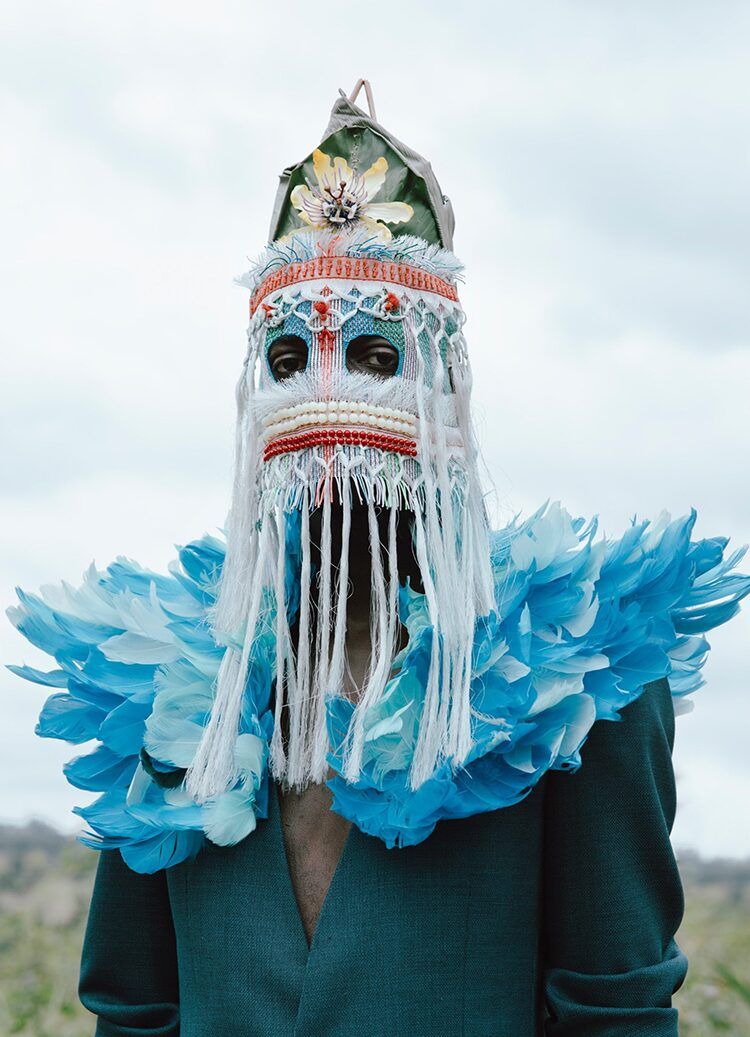
Are you currently taking part in several festivals in order to promote the film?
Yes. In April, the film was released in 6 countries, including Spain, Italy, Germany, the US, the UK and also the Netherlands.
Do audiences from different cultures react the same way to certain scenes?
I have to say the reactions are very different, depending on the audience. Certain cultures seem more comfortable with linear narratives, as opposed to others enjoying a more deconstructed script influenced by magic realism.
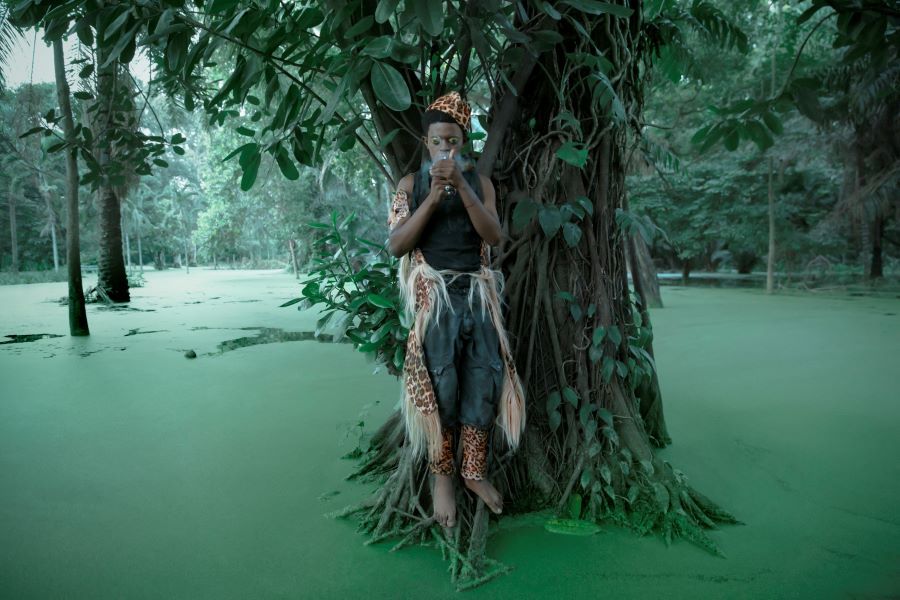
It seems to me that you like pushing boundaries as an artist. You often talked about your name in interviews, and how it has negative connotations. Are you also trying to challenge this within your work?
I guess that if I had had the possibility to do so, I would have changed my name. I wanted to remove my first name at the age of 18, but it was too costly for me to do that. When I found myself recording my first solo album, I realized that I didn’t really have a choice and needed to come to terms with my name. Over the past 10 years, I also understood that you can’t really escape your surroundings and that your name has a huge impact on your identity.
Do you see this impact in a positive way?
It’s not up to me to say that, but it’s true that my work deals with dreams, mystical forces and anything that relates to magic. I decided to embrace all of these aspects.
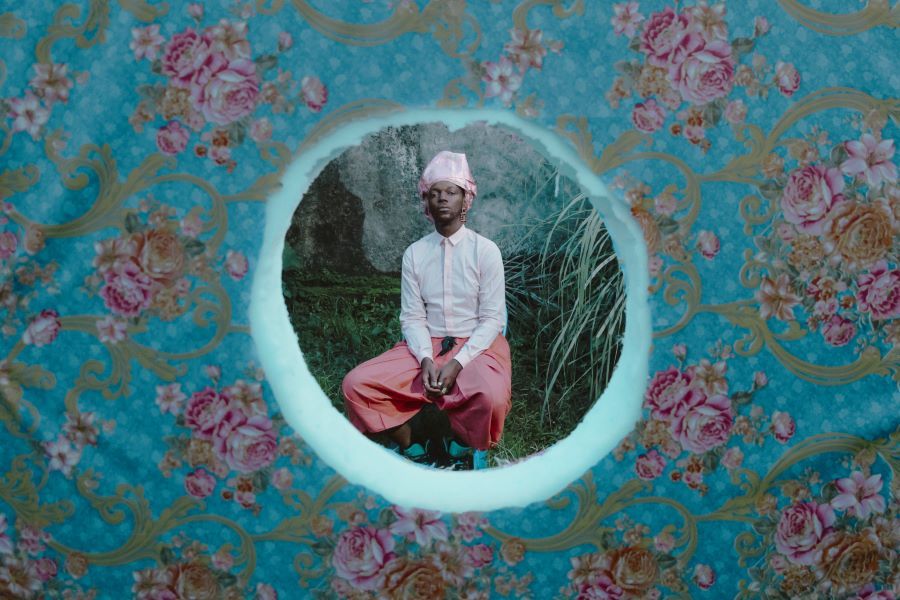
Do you use storytelling in order to expose truths, that may be quite tricky to unveil within a non-creative setting?
Totally. Cinema allows me to deal with key societal issues in a way that is not naturalistic, which is important to me. It gives me more freedom to tackle such issues in a way that remains inspiring. Within cinema, I also encountered a medium, which lets me use some of my different talents and abilities. The name Baloji refers to a group of sorcerers, and they all have distinctive kinds of expertise. My name is the combination -and fusion- of several sciences. I quit school at 14 and felt free ever since. I don’t even have an official date of birth.
Is identity a recurring theme in your work?
Not at all. I don’t think identity can be essentialized that way, or even summarized by a single thread. There isn’t one unique way to approach identity and I don’t think you can pin it down either.
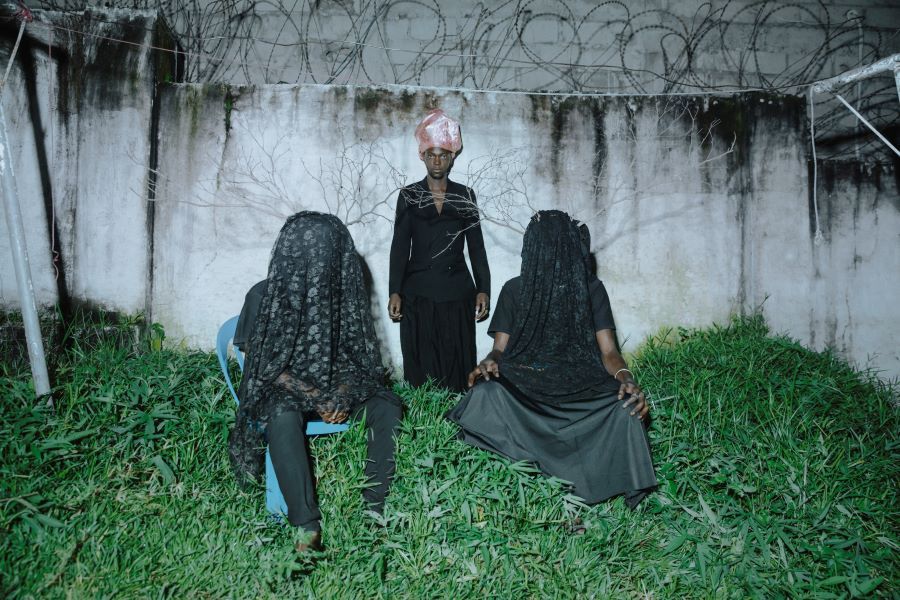
Is the artist a kind of sorcerer as well? How do you see his, or her, role in society?
I think there are so many ways to be an artist nowadays. Some are craftsmen or technicians. Others look for fame. I think the function of art depends primarily on where it is produced. There are several African artists today whose key goal is to sign with major galleries and therefore obey a commercial mindset. Does it make their message still relevant?
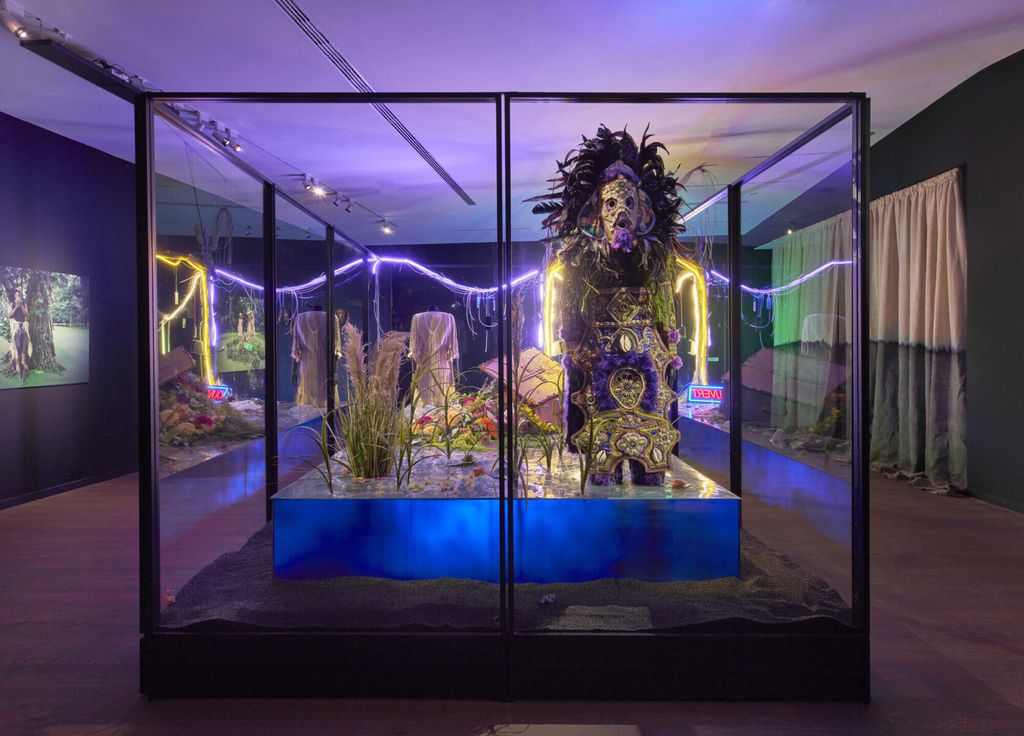
You showcased a beautiful exhibition at the MoMu, which runs until the 16th of June, named ‘Baloji Augurism’. What did you learn about curation?
Working with Kaat Debo was fantastic and I learned many things, especially when it comes to archiving. Archives are pretty non-existent within Hip Hop culture. The great thing is that the exhibition will take place into a new museum soon, which I am really excited about. I also released an album alongside the film, which I called ‘Omen’ as well.
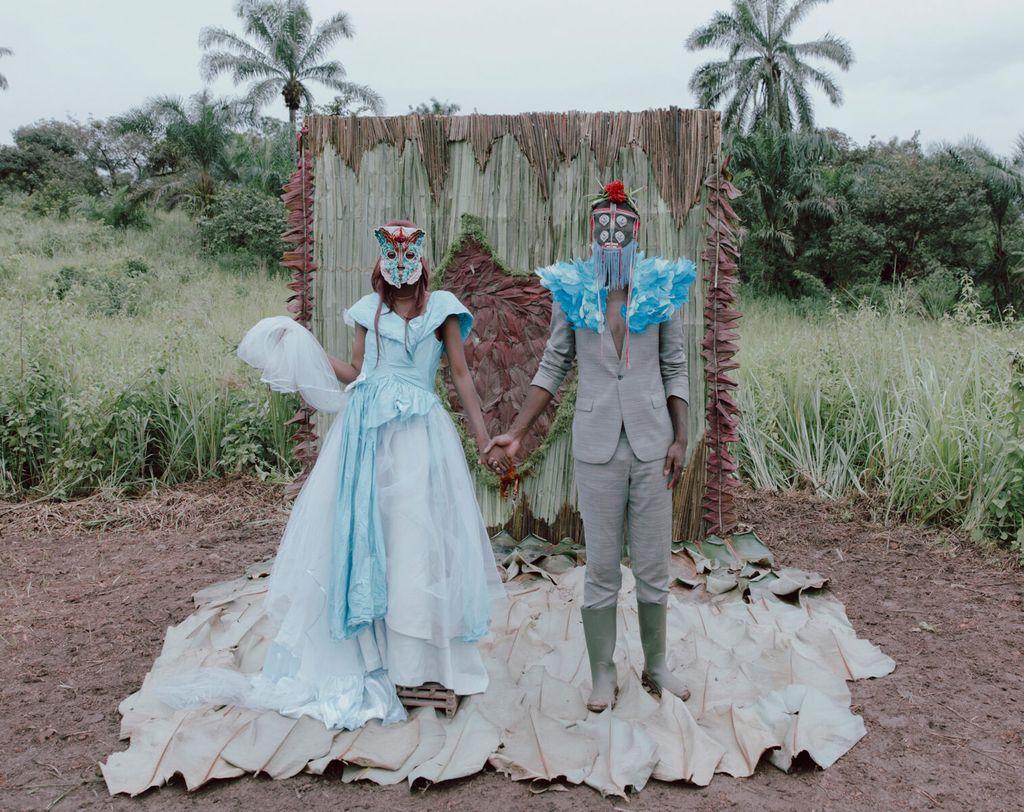
What gave you more satisfaction with ‘Omen’? Was it the process, or the final result ?
It is definitely the outcome that brings the biggest joy for me. Only the result matters in that sense. At the same time, the key role of a director is to give that initial impulse on set. I’ve never been the boss of a company in my life, but now I feel I can understand what this role truly entails.
